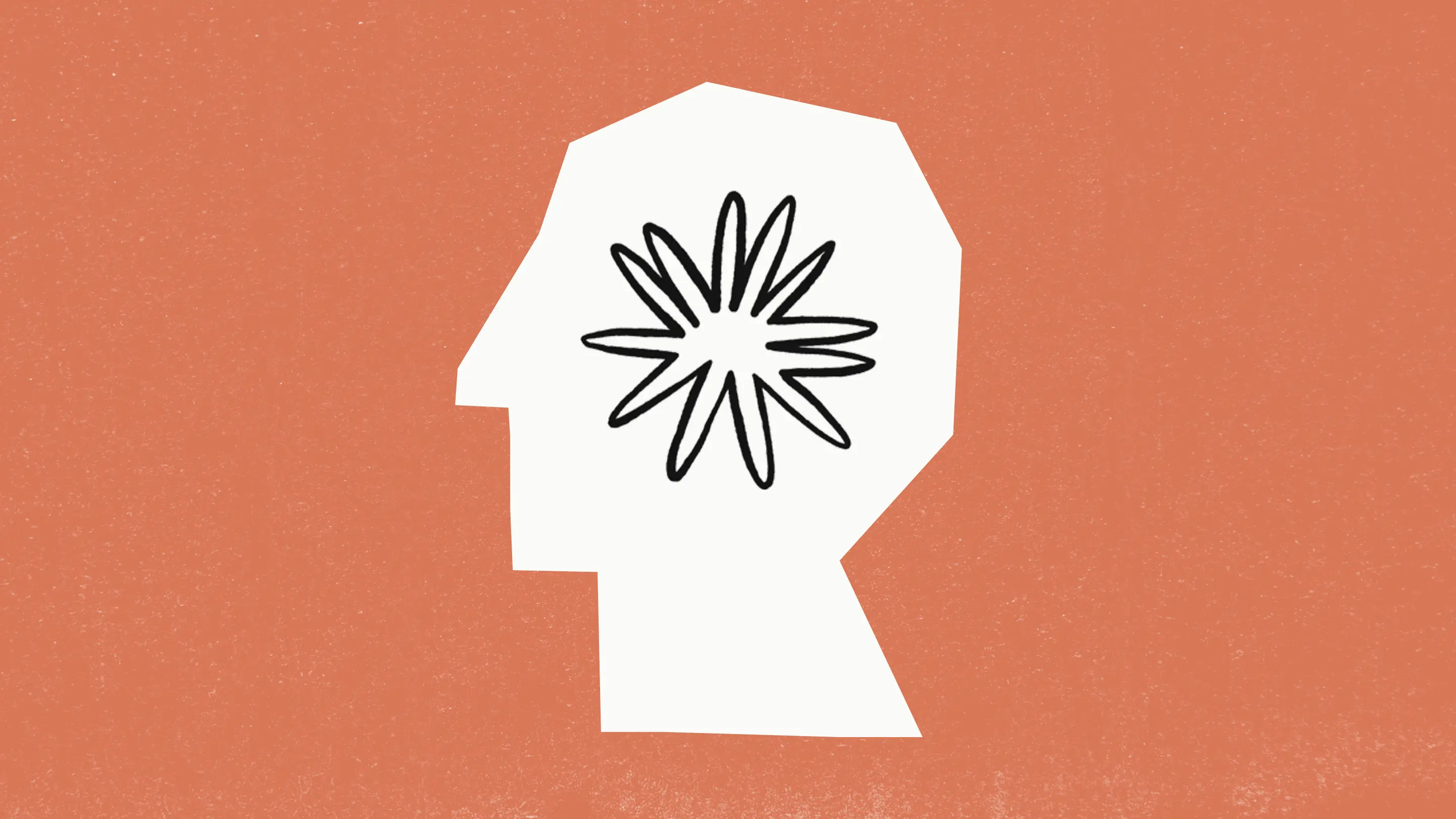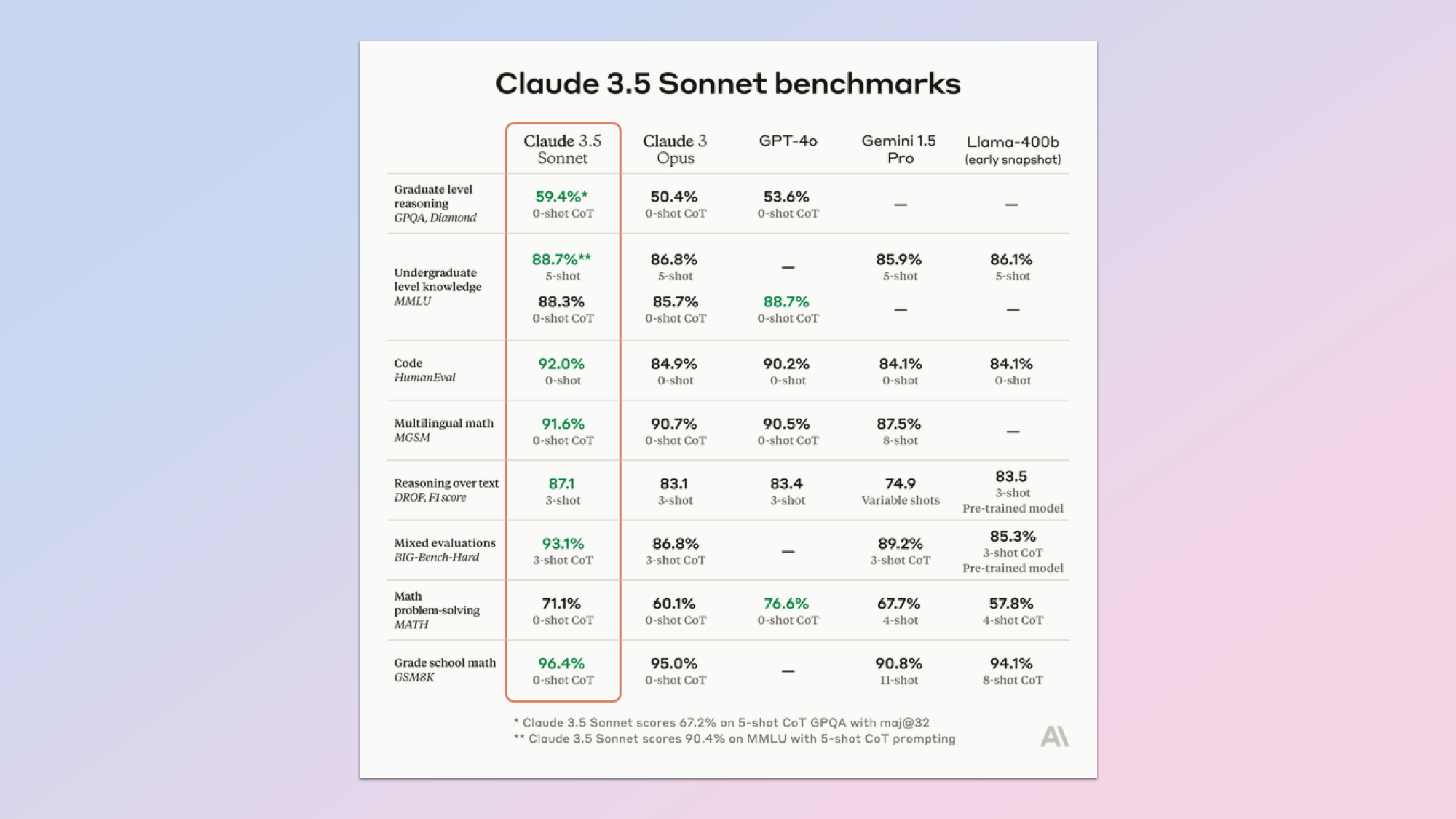Anthropic just dropped Claude 3.5 Sonnet with better vision and a sense of humor
Sonnet is faster and cheaper than Opus but now outperforms it on key tasks

Claude 3.5 Sonnet is the latest artificial intelligence model from Anthropic, one of the leading AI labs in the world. The company promises it is faster than its predecessor, has a better understanding of humor and can even read your handwriting.
Claude 3 Opus was already impressive. A model I dubbed the "most human-like" of any of the AI chatbots. I had a quick play with 3.5 Sonnet and it does seem more natural and with a better understanding of sarcasm. Claude is also listed as the best alternative to ChatGPT in my guide to chatbots.
This is the first release of the new generation of Claude 3.5 models to be followed by updates to the tiny Haiku and the massive Opus. For now Sonnet 3.5 outperforms Claude 3 Opus on a number of evaluations despite being faster and cheaper.
Anthropic is also launching Artifacts on the Claude website. This is a new feature that will let Claude run a code snippet or even display a website in a sidebar. More modalities and a memory feature are coming soon.
The updated model is already available to free and paid users on the Claude website and iOS app. Pro subscribers will have higher rate limits similar to ChatGPT.
What is new in Claude 3.5 Sonnet?

Claude comes in three tiers of model, similar to Google Gemini. The smallest is Haiku designed for quick summary tasks and very fast. Sonnet is the mid-tier for most use cases and available for free. Opus is the massive model on par with GPT-4.
During benchmark tests it outperformed Opus and GPT-4o on graduate level reasoning questions and undergraduate level knowledge.
Get instant access to breaking news, the hottest reviews, great deals and helpful tips.
Claude comes in three tiers of model. The smallest is Haiku designed for quick summary tasks and very fast. Sonnet is the mid-tier for most use cases and available for free. Opus is the massive model on par with GPT-4.
It comfortably outperformed all leading models on multilingual math but while it outperformed Opus on math problem solving, it wasn'st as good as GPT-4o.
One of the biggest upgrades was to its vision capabilities. That is the ability to analyze and understand an image. That could be a graph, chart, photograph or handwriting.
Anthropic says it can accurately transcribe text from even imperfect images — so that's CaPTCHA made redundant then.
"Sonnet now surpasses Claude 3 Opus across all standard vision benchmarks," Anthropic explained. "Improvements are most noticeable in tasks requiring visual reasoning, like interpreting charts, graphs, or transcribing text from imperfect images."
The launch of Artifacts
We're also launching a preview of Artifacts on https://t.co/uLbS2JMEK9.You can ask Claude to generate docs, code, mermaid diagrams, vector graphics, or even simple games.Artifacts appear next to your chat, letting you see, iterate, and build on your creations in real-time. pic.twitter.com/ow77Jh7ebOJune 20, 2024
One of the more surprising updates was the launch of Artifacts. According to Anthropic this is a new feature that expands how users interact with Claude.
If a user asks it to generate a piece of code, a text document or even a design for a website it will show off its work. Currently you get the code and have to implement it yourself to see if it works, but with Artifacts it will appear in the sidebar. This could include generating vector graphics and even entire games.
It appears in a dynamic workspace area and can be edited and built on in real-time "integrating AI-generated content into projects and workflows."
Currently a preview, the new feature moves Claude from AI chatbot to productivity tool, following similar moves by OpenAI with ChatGPT.
"In the near future, teams — and eventually entire organizations — will be able to securely centralize their knowledge, documents, and ongoing work in one shared space, with Claude serving as an on-demand teammate," Anthropic says.
More from Tom's Guide
- I tried Midjourney's new web app for making AI images — and I'm never going back to Discord
- New report puts Android vs iOS security to the test — here’s the winner
- iOS 18 just tipped for a major productivity upgrade

Ryan Morrison, a stalwart in the realm of tech journalism, possesses a sterling track record that spans over two decades, though he'd much rather let his insightful articles on AI and technology speak for him than engage in this self-aggrandising exercise. As the former AI Editor for Tom's Guide, Ryan wields his vast industry experience with a mix of scepticism and enthusiasm, unpacking the complexities of AI in a way that could almost make you forget about the impending robot takeover.
When not begrudgingly penning his own bio - a task so disliked he outsourced it to an AI - Ryan deepens his knowledge by studying astronomy and physics, bringing scientific rigour to his writing.
 Club Benefits
Club Benefits















